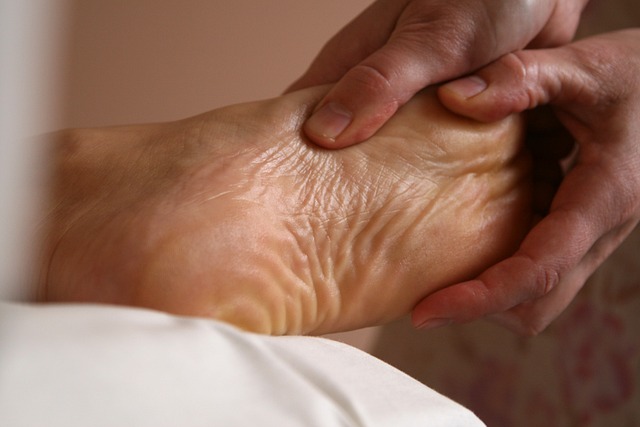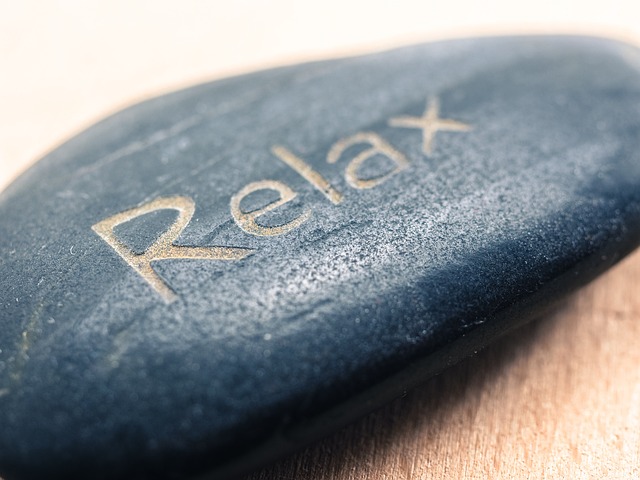This discussion emphasizes the importance of adopting a balanced diet primarily consisting of whole foods for optimal nutrition and avoiding processed items. It suggests incorporating portion control into your eating habits to manage caloric intake effectively. Staying hydrated is highlighted as crucial for bodily functions and cognitive performance, with tips to ensure you drink enough water daily. Regular exercise tailored to individual preferences and fitness levels is a cornerstone of health, contributing to cardiovascular fitness and muscle maintenance, and should meet guidelines of at least 150 minutes of moderate or 75 minutes of vigorous activity per week, complemented by twice-weekly strength training. Effective stress management through mindfulness practices and quality sleep habits are essential for mental clarity, emotional resilience, and overall well-being. Healthy meal planning that includes whole foods is advocated to support a thriving body and inform healthier lifestyle choices. Implementing these holistic practices, including regular exercise, staying hydrated, effective stress management, mindfulness, quality sleep, and portion control, can lead to significant improvements in your quality of life and health, avoiding processed food where possible.
Engaging in self-care is a multifaceted endeavor that encompasses a wide array of practices to nurture both mental and physical health. This article delves into the essence of a holistic approach to well-being, emphasizing the interconnectedness of our lifestyle choices and their profound effects on our overall health. We will explore actionable tips for adopting a healthier lifestyle, the significance of balanced diet advice for vibrant health, the benefits of regular exercise routines for a stronger, fitter body, and the importance of staying hydrated to optimize bodily functions. Additionally, we’ll navigate through effective stress management techniques via mindfulness practices, offer quality sleep tips for restorative rest, guide you on mastering healthy meal planning with portion control strategies, and discuss the necessity of avoiding processed foods for cleaner eating habits. Join us as we embark on a journey to enhance your well-being through these self-care practices tailored to promote a healthier lifestyle.
- Embracing a Holistic Approach to Well-Being: Tips for a Healthier Lifestyle
- – Highlight the importance of integrating various self-care practices that address both mental and physical health.
- – Discuss how lifestyle choices can significantly impact overall well-being.
- – Provide actionable tips for readers to adopt a healthier lifestyle.
Embracing a Holistic Approach to Well-Being: Tips for a Healthier Lifestyle

Incorporating a holistic approach to well-being involves nurturing the mind, body, and spirit for a harmonious balance. A key aspect of this approach is adhering to balanced diet advice, which entails consuming a variety of nutrient-rich foods that support overall health. Opting for whole foods over processed ones is a simple yet effective way to ensure your body receives the necessary vitamins and minerals. Additionally, staying hydrated tips are crucial; drinking ample water throughout the day not only optimizes bodily functions but also enhances cognitive performance.
Regular exercise routines are another cornerstone of a healthier lifestyle. These can range from brisk walks to high-intensity workouts and everything in between. The importance of consistency cannot be overstated; even short, daily physical activities can significantly improve cardiovascular health and maintain muscle strength. Pairing these routines with effective stress management techniques, such as mindfulness practices, can further amplify the benefits by promoting mental clarity and emotional resilience. In this vein, quality sleep tips are indispensable; establishing a restful nightly routine helps to ensure that your body and mind recover and rejuvenate adequately. For those looking to enhance their meal planning, focusing on healthy meal planning and portion control strategies will not only aid in maintaining a balanced diet but also prevent overeating and support weight management goals. By integrating these holistic practices into daily life, you can cultivate a sustainable path toward enhanced mental and physical well-being.
– Highlight the importance of integrating various self-care practices that address both mental and physical health.

Incorporating a multifaceted approach to self-care is pivotal for individuals seeking to enhance both their mental and physical well-being. A balanced diet, rich in nutrients, supports overall health; it’s advisable to focus on whole foods and limit the intake of processed items. Mindful eating, a practice that encourages awareness and appreciation of food, can aid in portion control, leading to better management of caloric intake and satiety. Regular exercise routines, tailored to individual fitness levels, play a crucial role in maintaining physical health while also offering mental clarity and stress relief. Whether it’s yoga, brisk walking, or strength training, finding an activity that resonates with you can significantly improve your quality of life.
Staying hydrated is often an overlooked yet vital aspect of self-care. Drinking adequate water throughout the day flushes out toxins, aids in digestion, and keeps the body functioning optimally. In tandem with physical activities, staying well-hydrated can prevent cramps and fatigue, ensuring that you maintain energy levels for daily tasks and workouts. Effective stress management techniques, such as deep breathing exercises or meditation, can be particularly beneficial when combined with mindfulness practices. These techniques help to center the mind, reduce anxiety, and promote a state of calmness, which is essential for mental resilience. Quality sleep tips, like maintaining a consistent sleep schedule and creating a restful environment, are integral to rejuvenating the body and mind. Good sleep hygiene contributes to cognitive function, emotional regulation, and overall health, making it a cornerstone of self-care. Healthy meal planning can be simplified by focusing on nutrient-dense foods that provide the body with what it needs to thrive. Planning meals in advance not only saves time but also ensures that you’re making informed choices about what you eat, contributing to a healthier lifestyle overall.
– Discuss how lifestyle choices can significantly impact overall well-being.

Incorporating well-informed lifestyle choices is pivotal for enhancing both mental and physical well-being. A balanced diet, rich in nutrients and devoid of processed foods, serves as the foundation for good health. Seek out tips for a healthier lifestyle that emphasize whole foods, which can provide your body with the necessary vitamins, minerals, and energy to thrive. For instance, prioritizing fruits, vegetables, lean proteins, and whole grains over refined sugars and carbohydrates can significantly improve your overall health and energy levels. Additionally, regular exercise routines are a cornerstone of maintaining well-being. These can range from high-intensity workouts to gentle yoga, depending on your fitness level. Staying hydrated is equally crucial; drinking sufficient water throughout the day supports bodily functions and maintains mental clarity. To ensure you stay hydrated, keep a reusable water bottle handy and make sipping water a habitual part of your daily routine.
Effective stress management and mindfulness practices are essential components of a holistic approach to self-care. Engaging in activities that calm the mind, such as meditation or deep-breathing exercises, can mitigate the harmful effects of stress. Quality sleep tips, like maintaining a consistent sleep schedule and creating a restful environment, contribute to better sleep patterns and overall health. Moreover, healthy meal planning should include portion control strategies to prevent overeating. By understanding appropriate serving sizes and being mindful of what and how much you consume, you can better manage your nutritional intake for sustained energy and wellness. These practices, when woven into your daily life, can lead to a more balanced and fulfilling existence, with tangible benefits for both your mental and physical health.
– Provide actionable tips for readers to adopt a healthier lifestyle.

Incorporating a balanced diet into your daily routine is foundational for a healthier lifestyle. Start by increasing your intake of whole foods such as fruits, vegetables, lean proteins, and whole grains. These nutrient-dense foods provide essential vitamins, minerals, and fiber that your body needs to function optimally. Additionally, be mindful of portion sizes; using measuring tools or familiarizing yourself with standard serving sizes can help you keep track of what you’re consuming, thus aiding in portion control strategies. Another critical aspect of a healthier lifestyle is staying hydrated. Drink water regularly throughout the day, and before you feel thirsty, as this indicates your body is already dehydrated. Carrying a reusable water bottle can remind you to sip consistently.
Regular exercise routines are a cornerstone of maintaining both mental and physical well-being. Aim for at least 150 minutes of moderate aerobic activity or 75 minutes of vigorous activity each week, as recommended by health authorities. This can include brisk walking, cycling, swimming, or dancing. Incorporate strength training exercises twice a week to enhance muscle mass and bone density, contributing further to your overall health. For effective stress management, mindfulness practices such as meditation and deep-breathing exercises can be incredibly beneficial. Dedicate time each day to engage in these activities, allowing your body and mind to relax and rejuvenate. Lastly, quality sleep is paramount for a healthier lifestyle. Establish a consistent sleep schedule by going to bed and waking up at the same time every day. Create a restful environment by keeping your bedroom dark, cool, and free from electronic devices, which can disrupt your sleep cycle and overall restfulness. By adhering to these tips for a healthier lifestyle, you can improve your well-being significantly. Remember to avoid processed foods as much as possible, opting instead for whole, unprocessed foods that nourish your body without unnecessary additives or chemicals.
Incorporating a spectrum of self-care practices tailored to nurture both mental and physical health is a journey towards a more balanced and fulfilling life. This article has outlined actionable tips for adopting a healthier lifestyle, emphasizing the role of balanced diet advice, regular exercise routines, staying hydrated tips, and effective stress management through mindfulness practices. Quality sleep tips and healthy meal planning are cornerstones to this holistic approach, alongside portion control strategies that steer clear of processed food. By prioritizing these self-care elements, individuals can enhance their well-being significantly. Remember, the path to a healthier lifestyle is a continuous process that requires commitment and adaptability. Start today, and witness the transformative impact on your mental and physical health over time.
